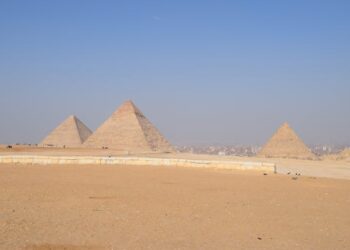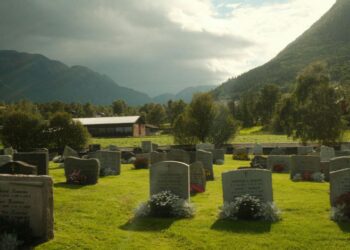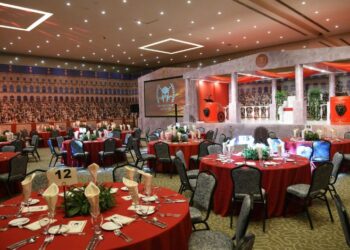Discover how Nintendo rebuilt Zelda from the ground up Breath of the Wild, redefining open-world exploration and player freedom.
If you have ever traveled to The Legend of Zelda: Breath of the Wild, there is a possibility that you had that moment, where you realized this is not just another Zelda game. For me, this happened when I stood on the Great Plateau, still fighting with the controls, and suddenly the horizon stretched infinitely in front of me. Mountains. Forests. Lakes. Everything was available. No invisible walls. No loading screens. Simply pure, unfiltered freedom.
Nintendo didn’t just continue the Zelda series; it rebuilt the franchise from the ground up Breath of the Wild. And this phrase is not just attractive marketing, this is the truth. The development team reduced decades of conventions, redefined what exploration could mean, and dared to deliver something that set a new bar for open-world adventure.
In this article, I’ll share why Breath of the Wild feels like a total reconstruction, what lessons Nintendo applied when designing it, and even what it means to us as players. Along the way, I’ll include some personal experiences (both cheerful and humbling) that I think you’ll relate to if you’ve ever wandered through Hyrule’s vast wilderness.
What You'll Discover:
Why “From the Ground Up Breath of the Wild” Means Something
When we say from the ground up Breath of the Wild, we’re not just using a fancy phrase. It captures the heart of Nintendo’s approach. The developers saw the Zelda formula, a structure that had been repeated for decades, and decided it was no longer enough.
For years, Zelda games had a rhythm: explore a semi-open overworld, enter dungeons in a set order, collect special items (hookshot, boomerang, bombs, you know the drill), and gradually unlock new areas. It was comfortable. It was familiar. But after Skyward Sword, even fans began to feel it was getting predictable.
So Nintendo asked a bold question: What if we rebuild Zelda from scratch?
This meant removing the safety net, destroying the blueprint, and starting with Zelda’s most basic idea: exploration.
Breaking Free from Tradition
I still remember the first time I played Ocarina of Time as a kid. The Deku Tree felt massive, Hyrule Field seemed endless (though it was actually small), and every dungeon gave me a new tool to play with. It was magical. But Breath of the Wild? It made Ocarina of Time feel like a carefully guided museum tour compared to the wild, untamed national park it could have been.
Nintendo essentially asked: What if players could climb anything? What if they could go anywhere? What if there wasn’t one “right” path, but hundreds?
That mindset shift is why BOTW feels so new. You’re not funneled into one dungeon after another. Instead, you’re tossed into a world and told, “Figure it out.” It’s intimidating at first, but exhilarating once you embrace it.
And isn’t that what from the ground up Breath of the Wild really means? Not just rearranging furniture, but tearing down the house and rebuilding it with a new foundation.
The Great Plateau: Nintendo’s Ground Zero
When I first started BOTW, the Great Plateau felt like a clever tutorial. But the more I played, the more I realized it was a microcosm of the entire game. Everything you needed to understand, physics, survival mechanics, shrine puzzles, was there.
The Plateau was Nintendo’s way of saying, “Here’s your sandbox. Play. Experiment. Fail. Discover.”
I’ll admit, my first few hours were messy. I froze to death because I didn’t bring spicy food. I set myself on fire trying to cook. I fell off cliffs (a lot). But every mistake was part of the learning curve. And that’s what made it beautiful. The game didn’t just give me answers, it let me stumble toward them.
That feeling of earned knowledge is what separates Breath of the Wild from most modern games, where tutorials practically hold your hand. Nintendo trusted us to learn organically, and that trust paid off.
Survival Systems That Changed Everything
Another reason BOTW feels rebuilt from the ground up Breath of the Wild is its survival layer. Cooking, stamina, weather systems, these weren’t just gimmicks. They changed how you approached the game.
- Cooking: The first time I accidentally made “Dubious Food,” I laughed out loud. But once I figured out recipes, I realized cooking was as strategic as combat. Suddenly, mushrooms and herbs weren’t just collectibles, they were lifesavers.
- Stamina: Remember when Link could sprint forever? Not anymore. Climbing cliffs, swimming rivers, even running in battle, all tied to stamina. It forced me to plan ahead and sometimes accept defeat when I pushed too far.
- Weather: Rain made me curse more than once (slipping off cliffs mid-climb is brutal). But then I realized, it wasn’t unfair. It was realistic. And adapting to it made victories sweeter.
These systems gave BOTW its gritty, immersive edge. They made Hyrule feel alive.
Shrines: Reinventing Dungeons
One of the biggest “from the ground up” changes was the move away from traditional dungeons. Instead, BOTW gave us shrines, over a hundred mini-puzzles scattered across the map.
At first, I missed the sprawling, themed temples from past Zelda games. But the shrines grew on me. They were bite-sized, perfect for experimenting with the physics engine. And stumbling onto one hidden in the wilderness after a long trek? It felt like a personal reward for curiosity.
It was Zelda, stripped down and rebuilt in a modular, flexible way.
A World That Rewards Curiosity
If I had to pinpoint why BOTW is so groundbreaking, it’s this: curiosity always pays off.
See a mountain? You can climb it. Spot a suspicious rock? Flip it, maybe there’s a Korok. Notice a strange formation? There’s probably a shrine nearby.
It reminds me of being a kid exploring my backyard. Every corner held a secret, an unusual bug, a cool-shaped rock, or a tree that seemed climbable. BOTW captured that childhood wonder in a way few games ever do.
My Personal Journey with BOTW
Before BOTW, I’ll be honest, I was burned out on open-world games. Too many of them felt like bloated checklists filled with busywork.
But BOTW changed that.
I remember one night, I logged in just to “play for 30 minutes.” Four hours later, I was still wandering Hebra, chasing wolves, gliding off cliffs, and stumbling into shrines. I hadn’t progressed the main quest at all, but I didn’t care. The journey itself was the reward.
And that’s when I realized: Nintendo didn’t just rebuild Zelda. With from the ground up Breath of the Wild, they rebuilt how I see games.
The Legacy of BOTW
The influence of BOTW is everywhere now. Modern open-world games borrow heavily from its design philosophy:
- Exploration-driven design instead of checklist maps.
- Survival elements that truly matter.
- Physics-based gameplay that rewards creativity.
Even Nintendo expanded on this design in Tears of the Kingdom, doubling down with mechanics like building and fusing.
But BOTW will always be remembered as the moment Zelda was reborn. The moment Nintendo proved that starting fresh could create something revolutionary.
Key Takings
- Playing BOTW taught me something bigger than gaming: sometimes, you have to tear things down and rebuild them.
- Whether it’s a career, a project, or even a relationship, there’s strength in asking: What if I rebuilt this from the ground up?
- That’s the true lesson from the ground up Breath of the Wild. Innovation requires risk. It’s uncomfortable.
- It’s messy. But if you trust the process, you might create something unforgettable.
- So the next time you stand on the cliff of the Great Plateau, staring out at a vast world of possibilities, remember, it’s not just Link’s journey.
- It’s a reminder of what’s possible when we’re brave enough to start again.
Additional Resources
- TIME – Why Nintendo Had to Destroy Tradition to Create the New ‘Zelda’: Interview with producer Eiji Aonuma on breaking long-standing Zelda conventions and rebuilding the game’s design philosophy.
- The New Yorker – The Dazzling Reinvention of Zelda: Explores how Breath of the Wild blended nostalgia with bold innovation, redefining open-world adventure.








